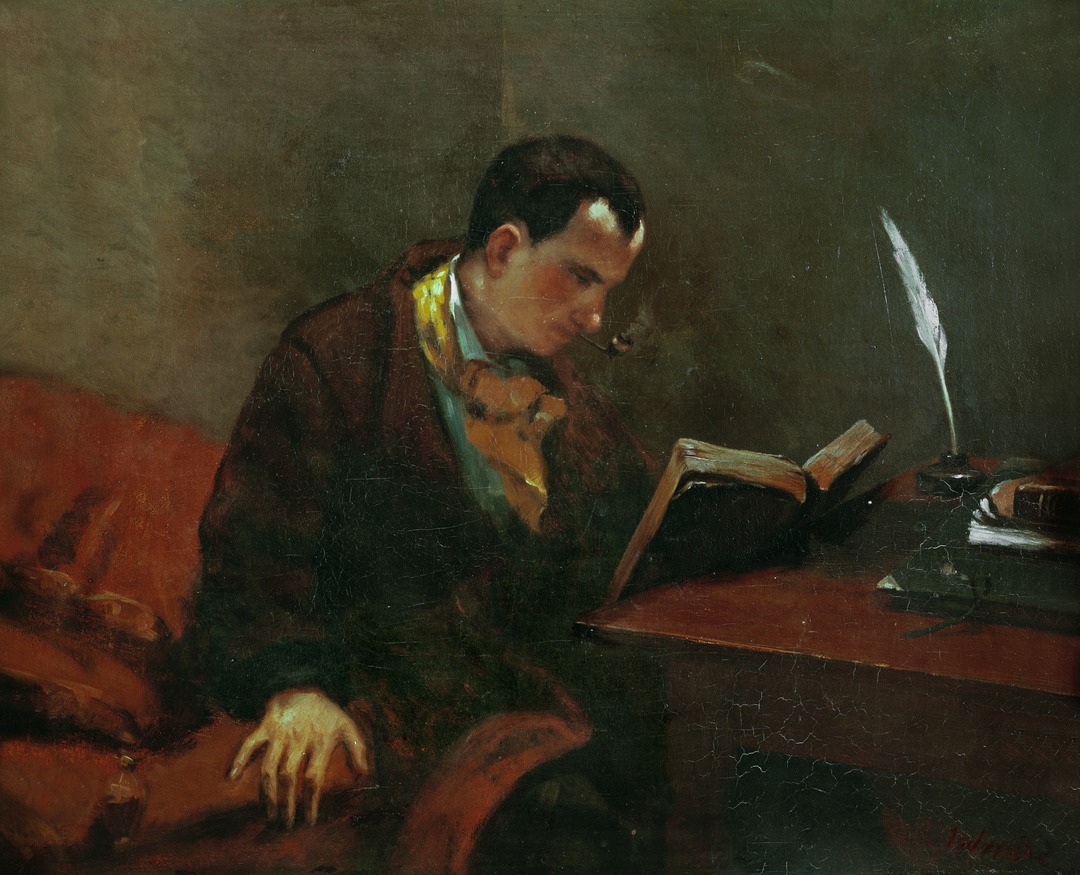Despite being born more than two hundred years ago, Charles Baudelaire’s poetry retains the feeling of something contemporary. In Verso Books’ new dual-language edition of The Flowers of Evil (Les Fleurs du mal), translated economically by Nathan Brown, the poet’s contradictory, shape-shifting, and still-startling voice emerges afresh. This is how Brown translates a quatrain from “The Sun” in which Baudelaire likens the poet’s vocation to a sword fight with his own imagination:
I practice my fantastic fencing as I go,
Sniffing every corner for the chance of rhyme,
Stumbling over words like paving stones,
Bumping into lines dreamed long ago.
For Baudelaire, beauty must be fought for. Or as he put it, “The study of the Beautiful is a duel in which the artist cries out with fear before he is vanquished.” This image of the poet as someone at war with the world was one Baudelaire cultivated. He helped to pioneer the modern image of the poètes maudits, or tortured poet, and inaugurated the definitively “modern” project of art as the last refuge of the heroic scoundrel, the ostracized outcast, the individual in search of relief or redemption from the evil and banality of modern life.
Baudelaire was born in 1821 to a prosperous family in Paris. His father died when he was just five, and his mother soon remarried to General Jacques Aupick, a man who would rise through the ranks of France’s military bureaucracy during and then after the Second Republic. Baudelaire, meanwhile, lived a life in artistic exile — although he escaped his stepfather’s attempts to send him into actual exile in Calcutta by sneaking onto a boat back to Paris. Not unjustly, he compared himself to Hamlet, although he offered a modern spin on the Shakespearean hero. What motivated Baudelaire was the lifelong self-hatred of a man unable to move beyond his own…
Auteur: Gus Mitchell

